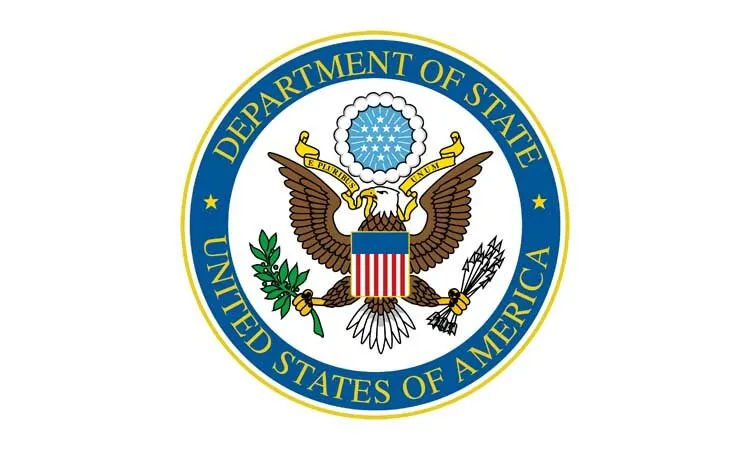The U.S. Department of State continues to insist. All the personalities indexed for their involvement in the financing of armed gangs, illicit drug trafficking and other crimes are indeed guilty of the acts they are accused of.
This is what a senior advisor at the U.S. State Department said in an exclusive interview with CaribbeanTelevisionNetwork to be released this Friday afternoon, March 10.
All the people indexed are guilty
In this interview, Mrs. Bintou Njie explains that before adding someone’s name to the list of sanctions, an extremely rigorous process was carried out by the U.S. authorities.
“What I can say is that we, the United States, would not designate any individual without going through a very rigorous process. So if individuals claim that they were listed in error, they can make their case, but for every individual that we have designated, we have evidence that shows that they are engaged in the destabilization of Haiti.”
However, the U.S. official acknowledges that sanctioned individuals can still contact the U.S. government through the State Department if they feel their rights have been violated. “With respect to individuals who feel they have been unfairly singled out, they can always come forward and make their case, and in some cases they have, so we are looking into the situation,” the U.S. official reassured.
Names of some sanctioned individuals may be removed from the list
During this exclusive interview with ZoomHaitiNews, Ms. Bintou Njie also insisted that the sanctions are not permanent. The names of certain indexed personalities can be removed from the sanctions list if they are able to prove that they have abandoned their practice of destabilizing Haiti. “Sanctions are a tool to change behavior and hold people accountable,” said Ms. Njie, who boasted of the positive results of sanctions that have “brought key actors to the table.
Why are some names kept secret while others are made public?
Asked why some names have been released while others are kept secret, the State Department adviser explained that the difference is due to the U.S. visa categories of those involved. Some types of visas require the government to preserve the names of certain alleged criminals while others are less restrictive. “You know, as I mentioned, some of our authorities don’t allow us to name individuals publicly, while others do. So we’ll have cases where some will be named and some won’t…” says Ms. Njie. “…..I don’t think the most important point here is that those who are not engaged in destabilizing activities in Haiti have nothing to worry about, whether they are on the list or not, while those who are engaged in undermining peace and security in Haiti have everything to worry about.”
Pressed to explain whether the names published by Canada are also on the U.S. list, Ms. Njie had not wanted to go into detail. She merely recalled that each country has its own procedure.
“What I can say is that I would like to make some distinctions. The U.S. has designations and powers that are independent of the designation and that’s what Canada has, which is different from what the UN does. So the UN resolution 2653 that was passed last year was not an action or agreement by the United States or Canada, it was the international community coming together and agreeing that those who undermine the peace and security of Haiti should be held accountable and so the actions that the United States has taken uh and I’m going to speak a little bit for Canada here and say that the actions that they’ve taken support the actions of the international community via the UN resolution.”
The full two versions of the interview conducted by Emmanuel Paul will be published this Friday at 7:00 am on all CaribbeanTelevisionNetwork and ZoomHaitiNews platforms.







